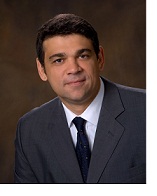 By: Pablo Mlikota, Senior Vice President, Caribbean and Latin America, Syniverse
By: Pablo Mlikota, Senior Vice President, Caribbean and Latin America, Syniverse
Any time a market is selected to host a major event like the Olympics or World Cup, news articles often are published about the work to be done to upgrade stadium seating and improve transportation infrastructure to accommodate a massive influx of visitors. However, just as vital as seating capacity and sidewalk space is ensuring the mobile infrastructure is primed to provide the uninterrupted service expected by visitors and residents alike, regardless of network strains.
With several of the largest global sporting events scheduled to take place in Brazil during the next four years, including the 2014 FIFA World Cup and the 2016 Summer Olympics, operators in the region are planning now for the increase in mobile demand. By taking steps in three key areas today, operators can alleviate expected network strains, enable users to have full access to their mobile services and capture the potential revenue during these events.
1 – Network Infrastructure
During events that draw hundreds of thousands—if not millions—of visiting roamers, networks must be ble to handle peak demands without interruption. Having a reliable IPX platform in place is necessary for operators to support a large flow of data traffic and provide the highest quality of service for subscribers. This necessity becomes even more vital as LTE becomes more widely deployed due to the proliferation of data-intensive applications like video communications. Users expect a seamless experience across all 3G, 4G and legacy technologies.
2 – Coverage
To guarantee optimal coverage for visiting subscribers, operators must establish roaming agreements with fellow operators from around the world. However, the amount of testing required for these new relationships can be time consuming and resource intensive. A trusted third party can work with operators to manage their roaming agreements and complete the required IREG, TADIG and CAMEL testing quickly and reliably to ensure roamers full access to their customary mobile services and operators the associated revenue opportunities.
3 – Real-Time Intelligence
Through proactive tools, operators can closely monitor their networks and resolve network issues before the subscriber experience is affected. These tools also keep the roaming subscribers outside the visited market informed by providing usage alerts that help prevent bill shock, particularly as visiting users are likely unfamiliar with local rates. By improving subscribers’ experiences through a more seamless connection and providing them with a better understanding of their usage, operators can expect heightened customer satisfaction and brand integrity.
The proactive steps Brazil’s operators are taking now to prepare their networks for what’s ahead are strong examples of how operators across the globe can manage traffic influxes resulting from any type of world-class event. Not only will Brazil’s operators be able to handle and benefit from the traffic during these events, but operator preparedness will also make the event experience more enjoyable for visitors, contributing to the overall success.